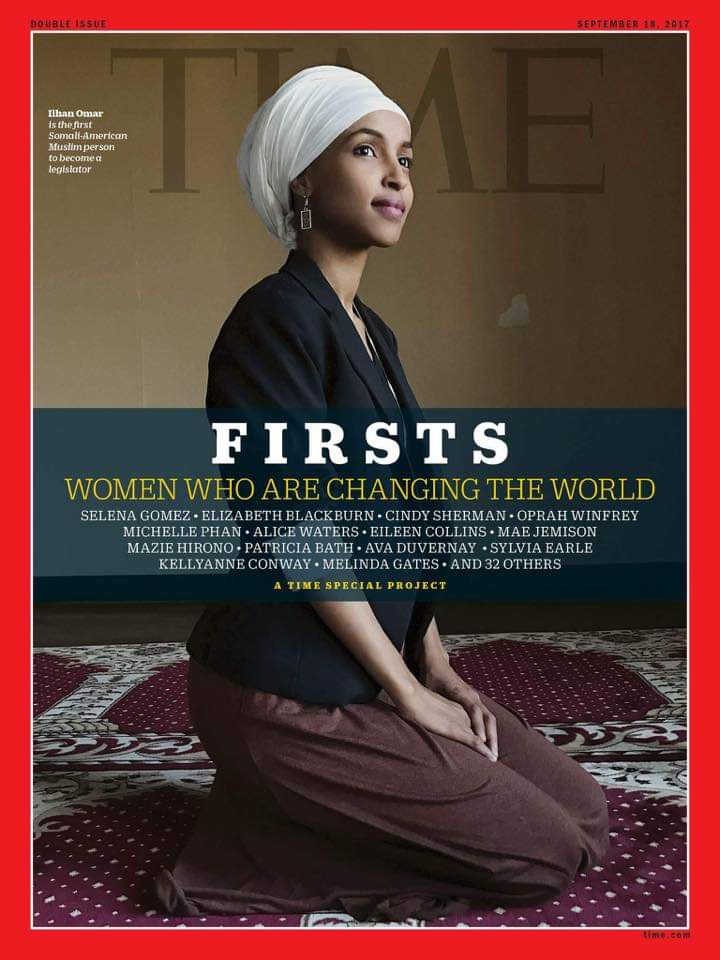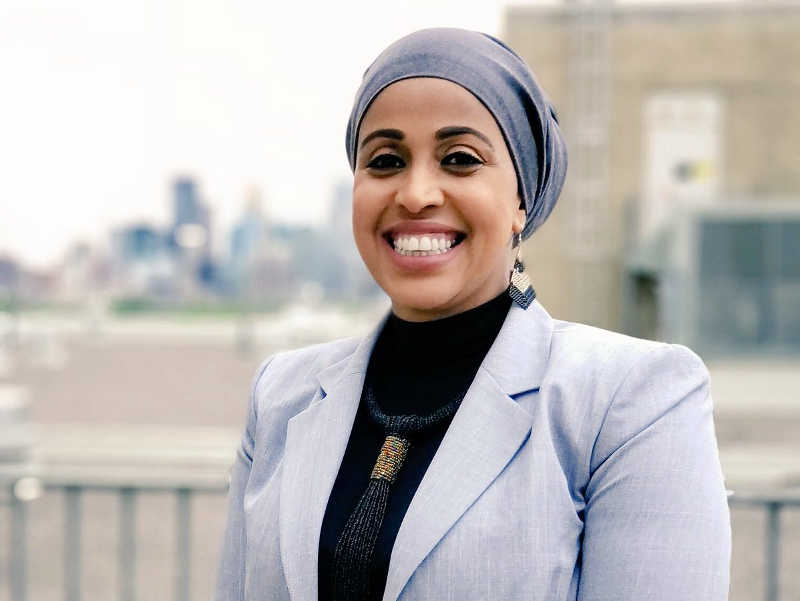

Ilhan Omar, became first muslim woman to be elected to US congress
Democrat Ilhan Omar, formerly a refugee from Somalia who entered the United States at age 12, and became a US citizen at 17 years, defeated Republican Jennifer Zielinski with a 78% landslide victory.

Ilhan Omar is a trail blazer
Her fellow Muslim colleague, also a democratic Rashida Tlaib, herself a daughter of a Palestinian refugee, was elected unopposed in Michigan.
Ilhan hailed her victory as victory for democracy and tolerance, especially towards refugees.

Ilhan Omar is a trail blazer
Omar also congratulated Tlaib on Twitter, and expressed her solidarity with her “sister” and excitement to serve in Congress together.
Pundits interpreted the victories of the two Muslim women as hugely symbolic, both for muslim visibility in the United States but also as a repudiation of anti-immigrant, nativist sentiments promoted during the age of Donald Trump.
Other trailblazing events that recorded in US politics that came last Tuesday are:

Ayanna Pressley, became Massachusetts first black congresswoman

Hodan Hassan, became only second Somali American voted into Minnesota Congress
Colorado’s Jared Polis became the nation’s first openly gay governor (although Oregon Democratic Governor Kate Brown, who identifies as bisexual, is already the first openly LGBT person to be elected governor).
New York’s Alexandria Ocasio-Cortez became the youngest woman ever elected to Congress at 29 years.
Sylvia Garcia and Veronica Escobar became the first-ever Latinas elected to represent Texas in the U.S. House.
New Mexico’s Deb Haaland of the Pueblo of Laguna tribe is the first Native American woman to represent her state as a U.S. representative.
Sharice Davids, a member of the Ho-Chunk Nation, is the first openly gay and first Native American woman to represent Kansas in Congress.














Henry Lutaaya
Leave a Comment
Your email address will not be published.